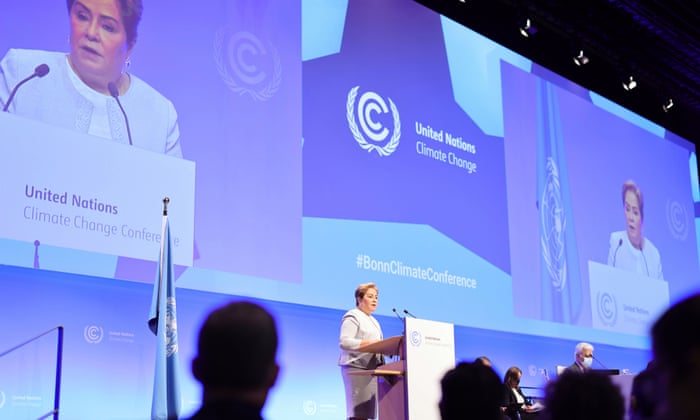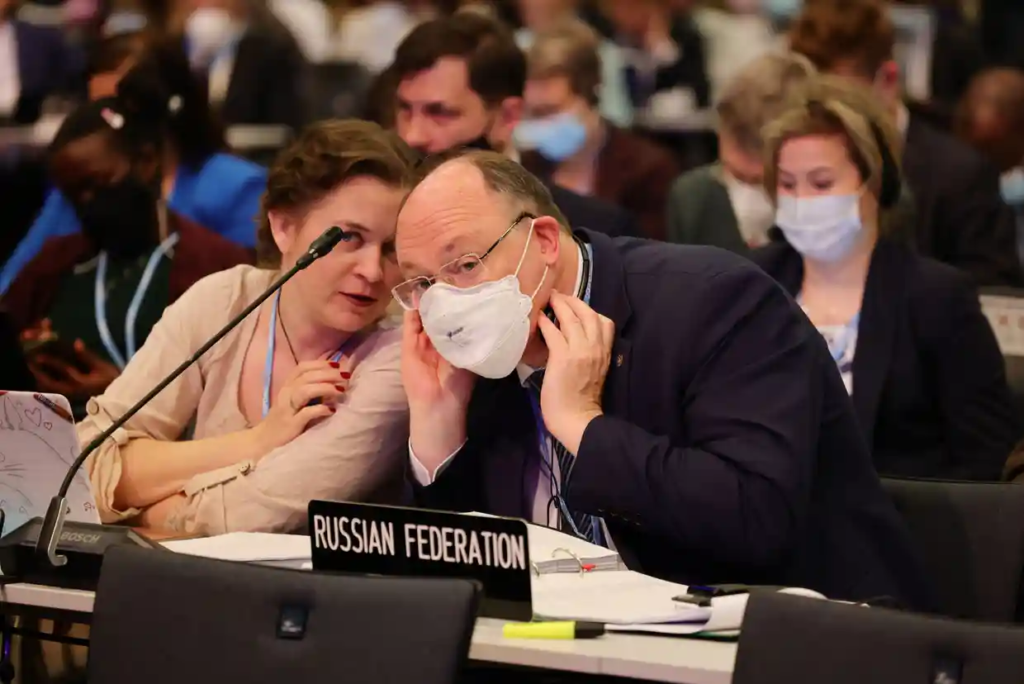The main purpose of this ongoing blog will be to track global extreme or record temperatures related to climate change. Any reports I see of ETs will be listed below the main topic of the day. I’ll refer to extreme or record temperatures as ETs (not extraterrestrials).😉
Main Topic: The Festering Ukranian War Could Derail COP27 In Egypt
Dar Diary. We all have been worried that the Ukranian War could explode, becoming World War III should a stray missile hit either NATO or Russian soil. Calmer heads have prevailed the first 100 days of this conflict, but there obviously have been global repercussions. The world’s food supply is threatened due to the absence of Ukranian wheat. Gasoline and natural gas prices have soared worldwide due to the embargo of Russian energy, which might have a silver lining, spurring the world faster towards renewables. Yet, the rancorous cry for “drill baby drill” has become ever louder because of a new energy crisis fostered on the world from petroleum advocates because of the war.
Russia might decide to use the ongoing Paris Accords agreements, which are evolving each year, as a bargaining chip against the West, though. That is one of my fears as we move towards COP27 in Egypt.
Here is a new Guardian article detailing some of my fears:
Climate delegates snub Russian address as activists fear geopolitical setbacks
World risks ‘sleepwalking to disaster’, officials told, as Bonn summit envoys walk out during Russian address

Climate delegates walk out of Russian address during Bonn summit
Fiona Harvey Environment correspondent Mon 6 Jun 2022
Delegates have walked out of a session at a climate summit in Bonn on Monday as a Russian official made a speech, in a sign of the geopolitical tensions overshadowing the negotiations.
The low-key protest marked the first intervention by Russia in a UN climate forum since the invasion of Ukraine, but it did not stop the talks.
Climate diplomats and experts said governments must not use geopolitical tensions and soaring energy prices as an excuse for falling behind on their climate commitments.
These are the first UN climate negotiations since Russia invaded Ukraine, and the first since the Cop26 summit in Glasgow in November ended with countries pledging to reconvene this year with strengthened commitments on cutting greenhouse gas emissions.
Patricia Espinosa, the UN’s climate chief, warned: “Climate change is not an agenda we can afford to push back on our global schedule. We need decisions and actions now, and it is incumbent on all nations to make progress in Bonn.”
With less than six months to go before Cop27 in Egypt this November, few countries are yet planning to update their plans on emissions cuts – known as nationally determined contributions (NDCs) – in line with the goal of limiting global temperature rises to 1.5C above pre-industrial levels, as they agreed to do in Glasgow.
Artur Runge-Metzger, a former EU chief negotiator, now a fellow of the Mercator Research Institute on Global Commons and Climate Change in Berlin, told the Guardian: “Countries will use Bonn to show where they stand, what their priorities are ahead of Cop27, and they must address the ambition gap [between the pledges made at Cop26 and those needed to hold to 1.5C].
“Everyone knows that coming out of Glasgow, the 1.5C goal was not 100% accomplished – it was a big step forward, but there is still a gap remaining.”
If fulfilled, the pledges on emissions cuts would result in a temperature rise of less than 2C, the first time this milestone has been reached. However, that is still a long way adrift of the 1.5C threshold countries have agreed to target. Analysts said tougher pledges were urgently needed.

Alexey Dronov, consul general of the Russian Federation, attends the opening day of the UNFCCC’s SB56 climate conference in Bonn. Photograph: Andreas Rentz/Getty Images
Bill Hare, the chief executive of Climate Analytics, warned: “The world appears to be sleepwalking to disaster. Governments appear to think taking more action is too hard. What will be more difficult is dealing with a 3C world. Already this year, we’ve seen horrific impacts, like the heatwave in India and Pakistan, and floods in the same region. This is just the beginning.”
Many countries have scope to take more action, particularly as soaring energy prices have forced them to reconsider their energy security. Niklas Höhne, of the NewClimate Institute, said: “The EU could take the lead as it is already set to overachieve its renewables targets. It would be good to see at least one big emitter step up and … bring others along.”
On current policies and measures, the world would reach at least 2.7C and potentially 3.6C. The three living former UN climate heads made a rare joint statement in the Guardian last week, pointing out this “implementation gap” and criticising countries for failing to translate their promises into policy.
Espinosa also called for action in Bonn. “Cop27 in Egypt needs to focus on implementation. Nations must show how they will, through legislation, policies and programmes, and throughout all jurisdictions and sectors, begin putting the [2015] Paris agreement to work in their home countries,” she said.
The fortnight-long Bonn talks are unlikely to produce any breakthrough or firm resolutions but are an opportunity for countries to iron out details left over at Glasgow and set out plans on their key priorities for Cop27 in Sharm el-Sheikh.
Observers will be watching keenly to judge the atmosphere at the talks, and whether countries are willing to cooperate, despite the worsening geopolitical tensions around the Ukraine war, economic and social instability as a result of the Covid-19 pandemic, and high energy and food prices.
At Glasgow, negotiators finally put the seal on the Paris rulebook, the set of instructions and accords needed to put the 2015 agreement into operation. Those complex technical issues, which also involved difficult political conundrums such as whether to allow countries to use carbon trading to meet their emissions goals, have occupied thousands of hours of negotiating time. Now, countries should, in theory at least, have cleared much more space at Bonn and in Egypt for negotiators to grapple with the substantive issues, such as emissions cuts.
However, thorny problems remain, including the protection of the world’s forests, the means of providing finance for poor countries to adapt to the impacts of climate breakdown, and the vexed question of loss and damage, which refers to the types of catastrophic damage that cannot be adapted to, and for which poor countries will need particular help.
Here are some “ET’s” recorded from around the planet the last couple of days, their consequences, and some extreme temperature outlooks:
Here is more May 2022 climatology:
Here is more climate and weather news from Tuesday:
(As usual, this will be a fluid post in which more information gets added during the day as it crosses my radar, crediting all who have put it on-line. Items will be archived on this site for posterity. In most instances click on the pictures of each tweet to see each article. The most noteworthy items will be listed first.)
(If you like these posts and my work please contribute via the PayPal widget, which has recently been added to this site. Thanks in advance for any support.)
Guy Walton “The Climate Guy”